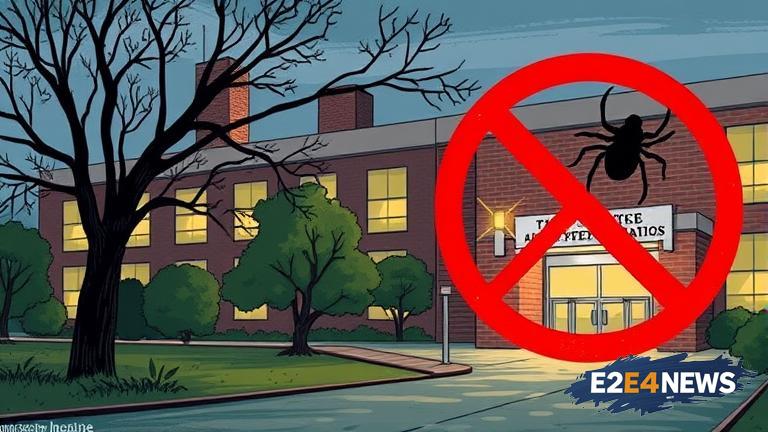According to recent reports, hospitals in Massachusetts are seeing a significant surge in patients presenting with tick bites. This trend has sparked concerns among healthcare professionals and experts, who warn that the rise in tick bites could lead to an increase in tick-borne illnesses such as Lyme disease, anaplasmosis, and babesiosis. The Massachusetts Department of Public Health has confirmed that the state is experiencing an unusually high number of tick bites this year, with many cases reported in the central and western regions. Experts attribute the increase to a combination of factors, including a mild winter, which allowed tick populations to thrive, and an increase in outdoor activities during the summer months. As a result, hospitals are taking precautions to educate patients and staff about the risks associated with tick bites and the importance of prompt treatment. Healthcare professionals are urging individuals to take preventive measures, such as wearing protective clothing, using insect repellent, and conducting regular tick checks after spending time outdoors. Despite these efforts, many patients are still seeking medical attention for tick bites, with some requiring hospitalization due to severe reactions or complications. The rise in tick bites has also led to an increase in demand for tick-borne illness testing, with many labs reporting a surge in test requests. In response to the growing concern, the Massachusetts Department of Public Health has launched a public awareness campaign to educate residents about the risks of tick-borne illnesses and the importance of prevention. The campaign includes distributing educational materials, hosting community events, and collaborating with healthcare providers to promote awareness and prevention. Additionally, researchers are working to develop new treatments and prevention methods for tick-borne illnesses, including vaccines and more effective repellents. Meanwhile, residents are advised to remain vigilant and take necessary precautions to protect themselves and their loved ones from tick bites. The Massachusetts Department of Public Health is also working with local animal control agencies to monitor tick populations and develop strategies for reducing the risk of tick-borne illnesses. As the summer months continue, it is essential for individuals to remain aware of the risks associated with tick bites and take proactive steps to prevent them. By working together, healthcare professionals, researchers, and the public can help mitigate the spread of tick-borne illnesses and ensure a safer and healthier community. The situation is being closely monitored, and updates will be provided as more information becomes available.
